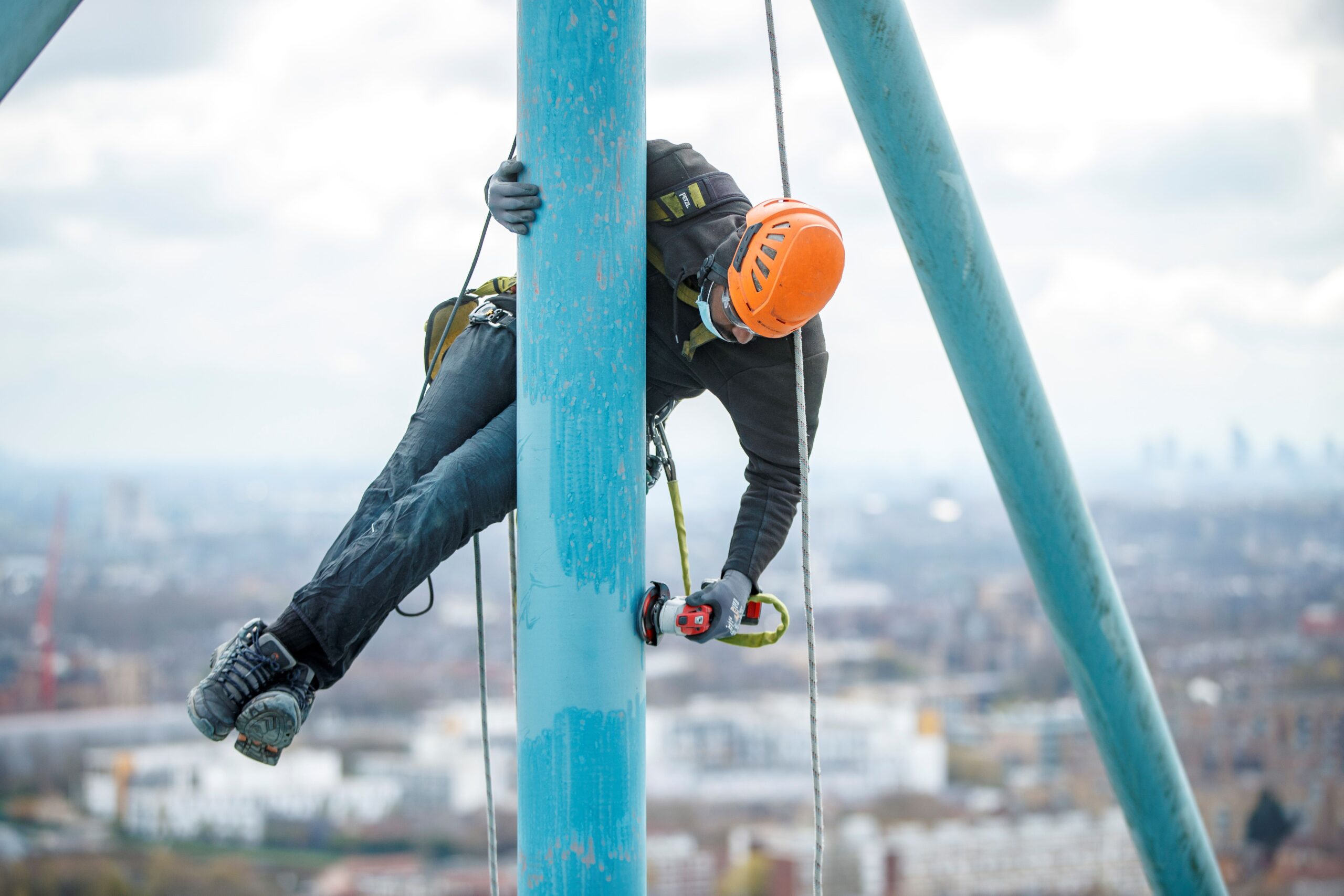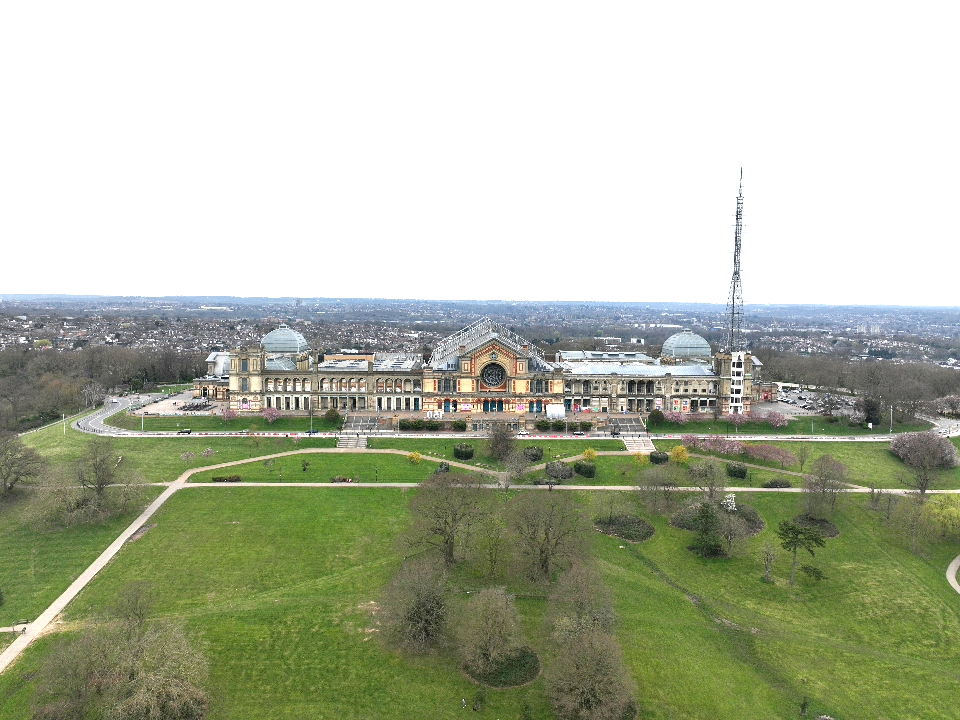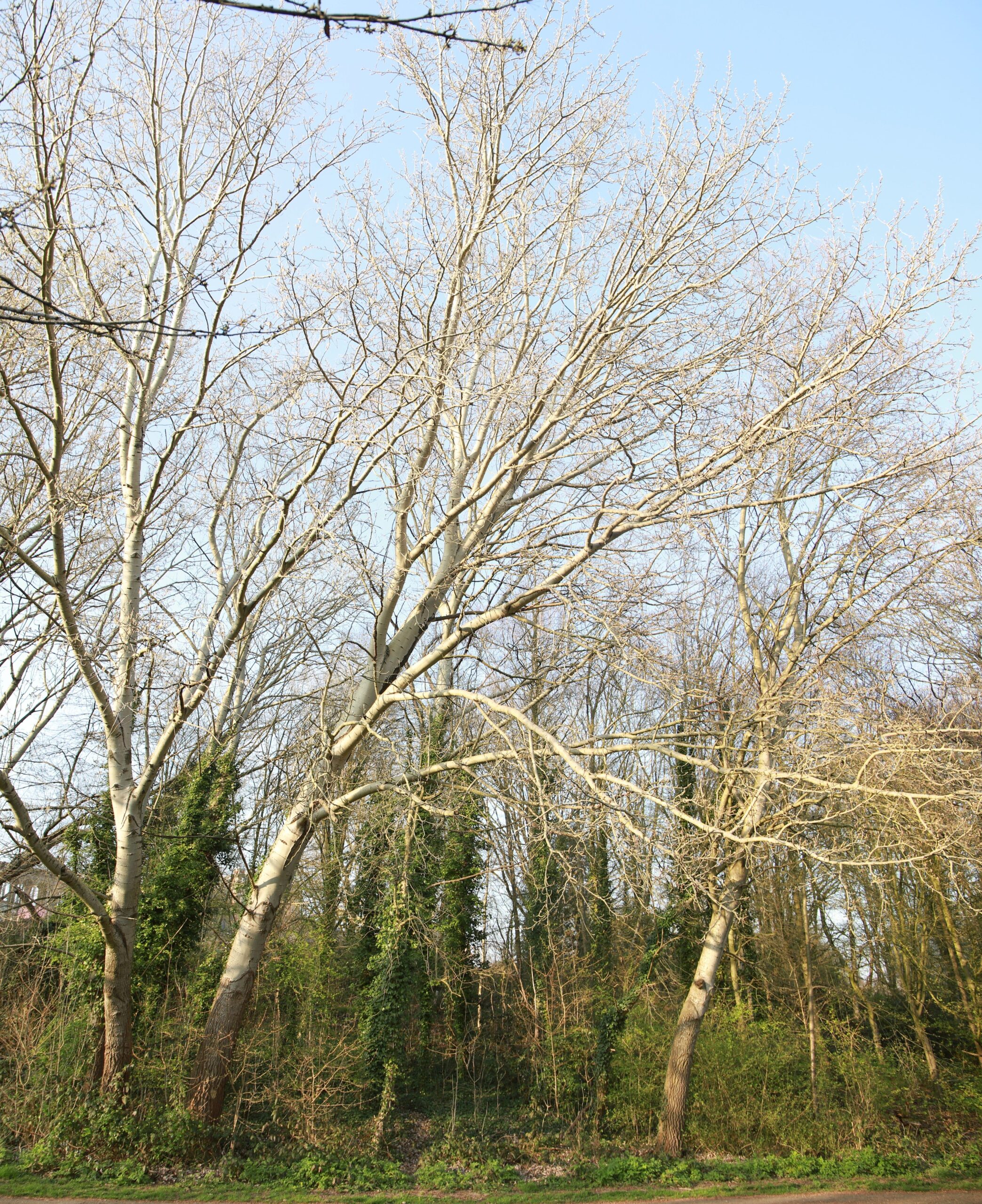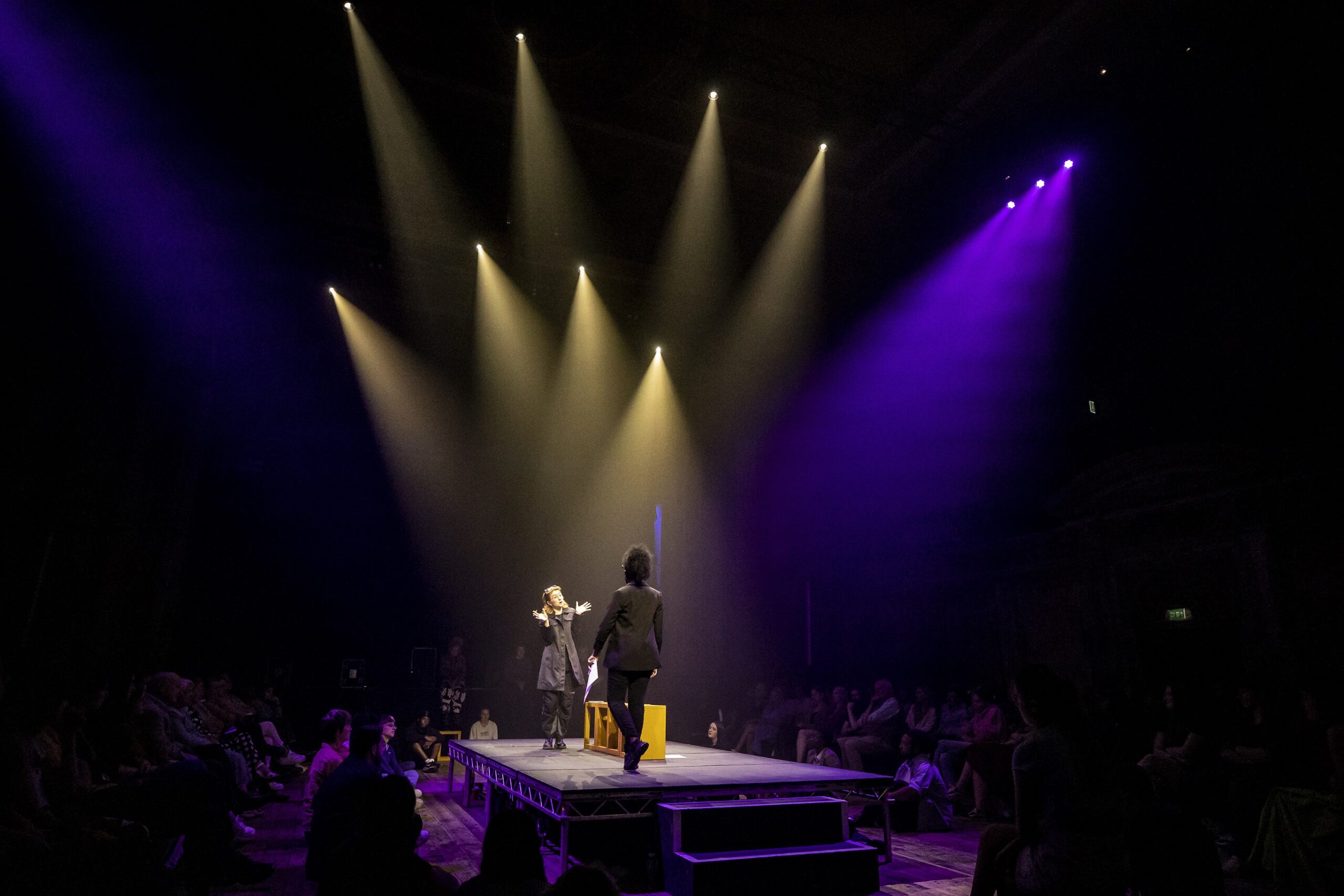At Ally Pally, we run a programme of dementia friendly activities including Singing for the Brain and The Wellness Café. The Sensory Suitcase is different to our other projects in that it takes the Palace and the extraordinary people connected to it, directly to older people in our community who are not physically able to make the trip.
Volunteers receive training and visit care home residents in pairs to deliver a 45 minutes to 1-hour sensory suitcase session with two residents and their carers. The suitcase is packed with multi-sensory objects that bring to life and tell the story of daredevil parachutist Dolly Shepherd, who used to work at Alexandra Palace at the turn of the 20th Century.
Sally is one of our volunteers and below she reflects on her experience in this project.
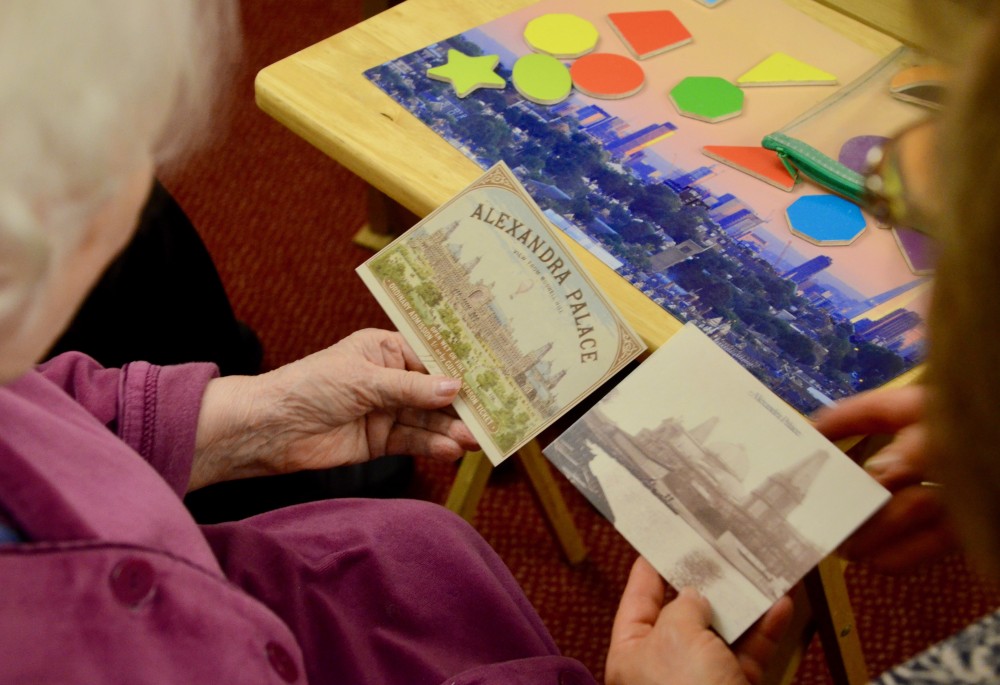
Sally’s Story:
Charles is talking but I can’t understand him. He is saying something about the sun, or it could be “son”, but most of the other words are unintelligible. His smile, on the other hand, needs no translation. It is radiant. And the twinkle in his eye is glorious. When he turns to Shirley there is a touching moment where they try to communicate with words but then realise quiet eye contact and a warm smile is enough. Shirley can’t remember where she lives but she lights up and sings when a music box plays ‘Somewhere Over the Rainbow’. Norma thinks it’s all “too much fuss and bother”, but Jean is prepared to leave her treasured toy cat “sleeping” while she joins us in the cafe and enjoys placing coloured magnets on a photograph of the London skyline. Elizabeth describes her life in Hornsey as a young trainee nurse and tells us how she loved to dance.
I’ve been delivering “Sensory Suitcase” sessions in Haringey care homes and Charles’s beaming smile is just one of many highlights.
The Sensory Suitcase contains objects relating to the amazing story of Elizabeth “Dolly” Shepherd, a waitress of seventeen in the cafe at Alexandra Palace around 1901, who became a parachutist at the Palace. Volunteers share the tale and explore the contents with pairs of care home residents, some living with dementia.
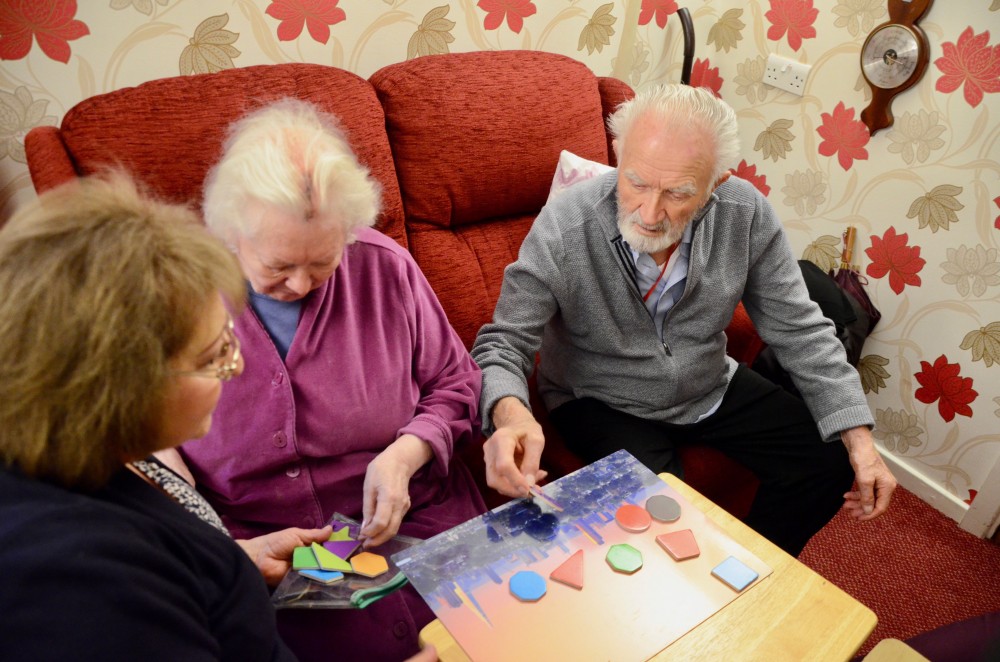
I’d been working from home for a few years, as a freelance subeditor and jewellery designer-maker, but my background is in theatre and I was missing being part of a team. I feel so lucky to have lived near Alexandra Palace for 12 years and love it; when I saw the Sensory Suitcase project on the website, I jumped at the chance to join such a creative and intriguing initiative.
My only apprehension was that I might find it sad to work with people living with dementia but on the contrary, it has been both positive and powerful. In fact, being part of the team of volunteers turned out to be one of my most enjoyable and rewarding experiences of 2018. Chiara and Marine, the Creative Learning Producers for Volunteers and Engagement respectively, go out of their way to make everyone feel welcome. The care homes could potentially be a daunting and challenging environment but the carers have, without exception, been accommodating and friendly and it has been moving to witness the love and respect with which they treat the residents. We have received excellent training – in non-verbal communication, dementia and safeguarding, among other topics – and I have felt supported at all times. It has also been a pleasure to get to know the other volunteers.
At one of the training sessions, Dementia Friendly Communities Co-Coordinator for the Alzheimer’s Society, Patrick Gray, compared a brain affected by dementia to a wobbly bookcase, with solid, heavy books containing childhood memories at the bottom, working up towards recent memories on flimsy pamphlets on the top shelves. When dementia strikes, the bookshelf can shake and more recent memories fall out. So it makes sense when an 80-year-old who lives in a care home says she has to leave to pick up her children from school. There have been occasional tricky situations: the residents’ range of needs is very broad, some are in early stages of dementia and very coherent and chatty but on one occasion my partner and I were presented with three very elderly patients in wheelchairs who were not able to speak. We decided to recount the story nonetheless and gently touched the objects to their hands. It was moving when one of the ladies responded by holding my hand for a few minutes. Other residents can feel overwhelmed or confused, and one, who feared we were coming to take her away, refused to take part but her carer reacted with kindness and warmth and helped to calm her. Other residents are engaged and delighted by our time together. With no expectations or background knowledge of the residents we can meet them as a human being, exactly as they are in the moment. It’s cheering to think that this sharing of stories can offer a break from routine for both residents and carers.
In fact, volunteering has also made me rethink my own life. If dementia wobbles my mental shelves, I want to remember relationships and being engaged with my local community. I’ve started working front of house at Alexandra Palace so I can meet more people. And I hope I will always remember that smile from Charles.
If you’d like to find out more about this project or volunteer please follow this link https://alexandrapalace.com/about-us/jobs/ or contact volunteer@alexandrapalace.com
